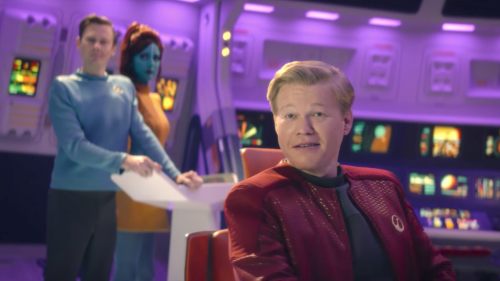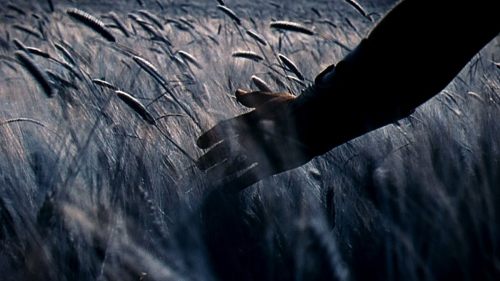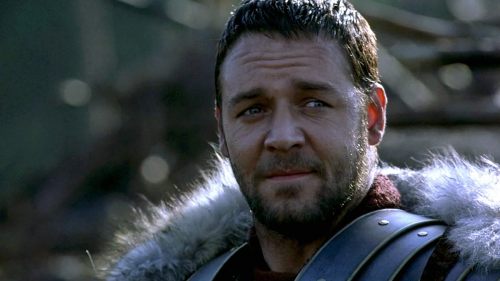In THE PROPOSITION, Hell Is The Australian Outback
Just a heads up that Mondo's beautiful new The Proposition poster with art by Ken Taylor goes on sale tomorrow!
The Australian Outback has never looked as profoundly deadly as it does in The Proposition, the 2005 western written by Nick Cave and directed by John Hillcoat.
The sun overhead is impossibly large, all-consuming. It bakes the Earth below with a heat you swear you can almost see. Water is scarce. Flies swarm like packs of tiny buzzards. Every available surface is buried under a fine sheen of grit and grime. The few bits of vegetation that have managed to survive look skeletal and diseased. When you hear the phrase "blasted hellscape", you picture something that looks a lot like this.
No one in their right mind would want to colonize this land, but that's precisely what Captain Stanley (Ray Winstone) has been sent there to do. He's been forcibly relocated to this godforsaken outpost, and - despite literally everything working against him - he is determined to "civilize" it. The elements alone would make that difficult, but Stanley's also got the Burns Brothers to contend with.
The Burns Brothers are the environment made flesh. Their gang has raped, murdered, and pillaged its way across Stanley's corner of the Outback, and he is determined to wipe them out. In the film's opening scene, we see Stanley and his men ambush and kill all but two members of the Burns gang: youngest brother Mickey (a jittery feeb) and middle brother Charles (Guy Pearce, sporting one of the yellowest sets of teeth in cinematic history). It turns out that the third and oldest brother, Arthur (Danny Huston), has had a falling out with his two younger siblings, and is holed up somewhere out in the canyons. Stanley offers Charlie a proposition: hunt down and kill Arthur, and he and his younger brother will be set free. This is the setup for one of the most vicious westerns ever made.
While The Proposition certainly has its supporters, I've always considered it to be a woefully undervalued film, and I'm fairly certain that viciousness is what's kept it from becoming as beloved as it deserves to be. This is a deeply unpleasant film, one where even the ostensible good guys are prone to acts of startling cruelty. It's not so much that none of the characters have goodness within them, it's that they've all been driven mad by their environment; their most noble attempts are warped by the heat, the flies, and the constant threat of death. Savagery begets savagery, and the line between "good" and "bad" becomes a moot point: It's all just varying degrees of bad.
Cave's an accomplished teller of apocalyptically gloomy tales, primarily through his songwriting career (reminder: you need to see 20,000 Days On Earth), but in The Proposition he proves himself an immensely talented screenwriter. For the most part, Cave's characters are wild animals who are just barely able to contain their basest instincts in order to pass as human, but their dialogue is often eloquent and lyrical. The effect is jarring and dreamlike. Just check out this monologue from John Hurt, playing a character I firmly expect to meet on my way to hell:
Special mention must also be made for Cave's score, which he performs with longtime associate/bandmate Warren Ellis. The music is haunting and mournful, absolutely befitting of the story being told. There's one arrangement late in the film where Cave really lets loose (it plays as Arthur and the remaining members of his gang descend upon Capt. Stanley's home; sadly, I cannot find the clip on YouTube), and it comes across like the film itself is going insane.
The film wouldn't be the same without Cave's contributions, but he's only a third of the equation: there's also Hillcoat's direction to consider, and Benoît Delhomme's cinematography. Hillcoat approaches the violence of the material with an unblinking eye (there's an all-timer headshot here, as well as a whipping scene that's seriously difficult to watch), really rubbing our faces in the awfulness of this time and place. Much like the incongruity of Cave's well-spoken savages, the juxtaposition between all this violence and Stanley's repeated calls for civility is a strange thing to behold, and Hillcoat wields it to powerful effect.
Delhomme's cinematography is the final piece of the puzzle. He presents this uncivilized Outback for what it is - an absolute wasteland - and yet there are moments of stunning beauty within it: Martha Stanley (a perpetually-terrified Emily Watson) wandering through a field at dusk, Charlie and Arthur watching the sun fall below the horizon (see the image up top), the bizarre sight of the picturesque Stanley homestead amidst all that nothing. That house may be the one civilized location in the entire movie, but even it will be defiled before the film ends.
The point, of course, is that some places cannot be civilized, that man (1880's man for sure, and probably modern-day man, as well) may be too selfish and naturally violent to ever truly civilize any location so remote and inhospitable. We often think of westerns as an inherently American genre, but the truth is that you can transport them to any location as long as you retain that core concept of Man VS The Frontier VS Man. In The Proposition, Hillcoat proves the Australian Outback to be one of the most formidable frontiers of all time, just as bloodthirsty, hellish, and savage as anything in the States.




